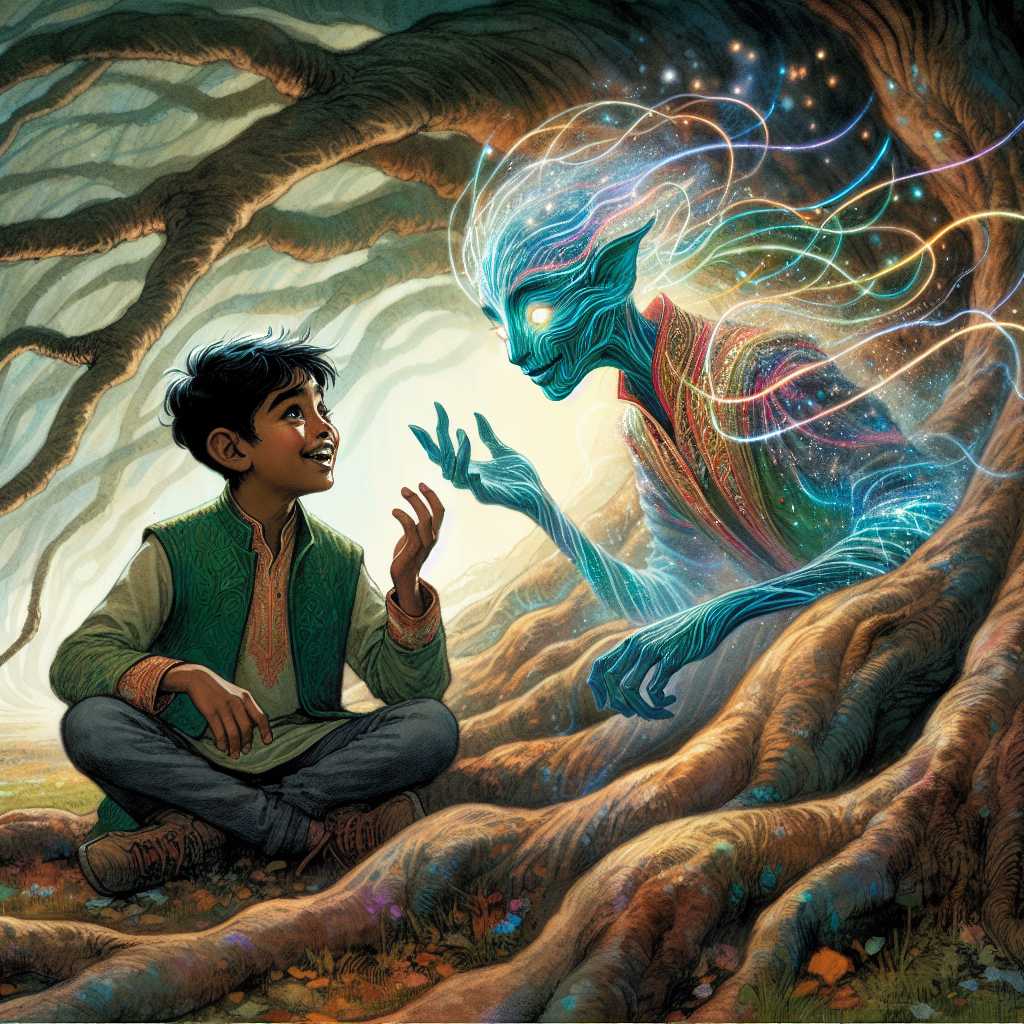
Once upon a time, in the heart of a misty village surrounded by whispering woods and ancient trees, there lived a fragile soul by the name of Elara. She was known as **Elara of the Sombre Glow**, and though many saw her as a beacon of compassion, her eyes always seemed to linger on the edge of sadness, like a sky perpetually caught between rain and sunshine.
Elara's house was a quaint little cottage perched at the edge of the village. Vines crept lazily over its stone walls, weaving patterns like frozen tears on a cheek. It was said that the sound of the forest seeped into her home like a soft melody, an eternal lament that whispered secrets of the old and forgotten.
In those days, the villagers were bustling with the commotion of harvest. Fields brimmed with golden grains and the cheerful chatter of children brought life to the market square. Yet Elara seldom ventured there, opting instead to wander the forest paths alone, her mind as dense and wandering as the labyrinthine trails of ancient oaks. Her solace lay in the rustling of leaves and the echo of her singular footsteps on the earth, which seemed to understand her silence.
"It's as if she walks with ghosts," the villagers would murmur, watching her from a distance, clutching baskets of bread and wool. They respected her, for she was gentle and kind, but her solitude was a mystery that wrapped around her like a thick, impenetrable fog.
There was a tale that the elders told by the hearth on chilly evenings. Elara had once possessed a smile that could banish the darkest night. She was the daughter of Rosa and Tomas, a pair as vibrant as spring. But that spring was shattered when she was barely twelve. A fever, they said, took them both one bitter winter, leaving young Elara to face the unyielding world with a heart heavy with grief.
The years passed, and Elara grew into a woman of quiet grace, but sorrow had laid a claim on her that shifted with the shadows of her every step. The village knew the darkness of loss but Elara’s loss was a well that seemed to have no bottom. She carried her parents’ memory like a candle in the dark, protective of its fragile flame.
One evening, when the twilight draped the world in hues of melancholy, she discovered a small, injured bird near the foot of an ancient elm. Its wing was bent at a tragic angle, its eyes flickering with the dim embers of survival. Gently, she scooped it into her hands, her touch careful and tender against its trembling form. She named it **Glenn**, and under her care, the bird’s strength returned slowly, its struggle a mirror of her own.
For Elara, Glenn became more than just a creature under her care. It was a companion that shared her silences, a true kin among the living. As the little bird found its wings, Elara felt hope flutter within her chest for the first time in years, tentative but bright against the gloom.
Yet, fate’s hand is often cruel in the tales it writes. One fateful morning, when the sun broke the horizon in a splash of gold against the sleepy village, Elara opened her window to greet the dawn and let Glenn taste the crisp morning air. She had nursed it to health, and now it was ready to return to the skies—it was an unspoken promise they understood.
With a whisper of farewell, Glenn took flight. Elara watched as it soared higher, an emblem of newfound freedom. But then, when but a speck against the azure sky, a shadow appeared. A hawk, fierce and swift, descended with predatory grace. The sky swallowed their cries, and for a moment, time stood still, balancing on the precipice of the inevitable.
The village watched in silence as Elara crumbled to the ground, the agony of loss blooming anew in her chest—a wound reopened, bleeding afresh. What she had given to the bird, she saw ripped away under the indifferent eyes of nature.
The years that followed saw Elara retreat further into her cocoon of sorrow. Her walks took her deeper into the woods, where the trees stood as solemn witnesses to her enduring grief. Her heart seemed threadbare, stitched time and again with threads too fragile to bear the weight of her pain.
But there was a gentle strength in Elara, a resilience as tranquil as it was profound. She came to understand that pain was a thread in the tapestry of life, just as love and joy were. The bird's brief flight, its ephemeral moment of freedom, became a talisman for her spirit—a reminder of the beauty in the transient and the fleeting nature of happiness.
She began to write, spinning her sorrow into words that danced and wept across the pages, a chronicle of her heart's journey through the labyrinth. The village, her silent companions, found solace in her words, reading them by the fire on cold nights. In her prose, they found echoes of their own losses, their own dark nights softened by the dawn.
Though Elara never fully mended, there was peace in her acceptance. Her life unfurled quietly, like the leaves that returned each spring to the forest, bearing the invisible scars of past winters. Her tale whispered through the village, a melancholic song of enduring hope amidst the shadowed woods, reminding them all that even in the depth of despair, there was the promise of dawn.
And so, even as the winds howled through the trees, carrying the whispers of long lost souls, the village remembered Elara of the Sombre Glow—not for her sadness, but for the fragile beauty of her resilience, and the tenderness of a soul that learned to find light even as it navigated through the shadow's embrace.










